Cats, with their enigmatic and independent nature, often give the impression that they are perfectly content in their own company, savoring solitude as if it were a luxury. This characteristic aloofness leads many to wonder: do cats experience loneliness in the same way we do, and do they crave the companionship of their human guardians or fellow feline friends?
The reality of a cat’s social needs is indeed complex. While cats are often seen as solitary creatures, they are also capable of forming deep bonds and experiencing loneliness, especially if left alone for prolonged periods. Each cat has a unique personality, and their desire for social interaction can vary widely. Some cats may thrive in the company of their human family members or enjoy the presence of other pets, while others may prefer a more solitary existence with less frequent social interactions.
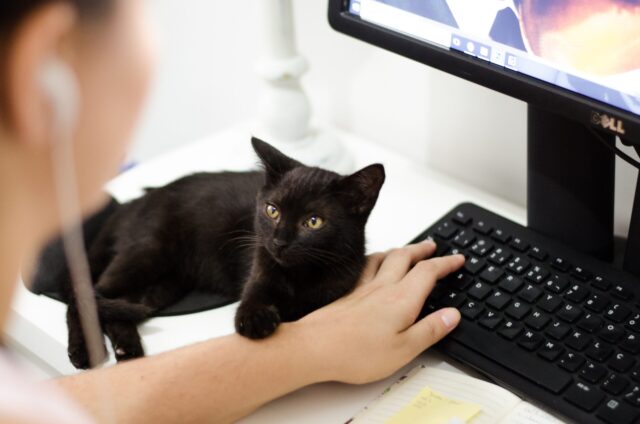
Identifying loneliness in cats can be challenging, as they are masters of subtlety and may not display their feelings as overtly as dogs do. However, there are signs that may indicate your cat is craving more interaction:
Unlike dogs, cats are solitary hunters, preferring to dine on the spoils of their hunt alone. Marilyn Krieger, The Cat Coach, explains cats prefer to eat away from other cats, but cat parents typically have felines sharing space when it comes to the food bowl, and “cats have to eat, so they will, but they’re not very happy.”
If anything, Krieger says, “It’s a little stressful.”
So, cats don’t experience loneliness around the food bowl. If anything, the kitties probably want more space around the dish. But what about the rest of the time?
Social Solitaires
While they aren’t pack animals, most cats do have a lovey side, one requiring attachments to other cats or their people. Obviously, we know our cats enjoy our attention and crave playtime, but do cats get lonely for other cats?
Cats are social creatures, even if their idea of social is different than ours, they need contact with others in order to maintain a healthy state of being, both physically and mentally. In households, cat parents often see two cats bond in a relationship that will stand the test of time and catnip. And even if cats who share a home aren’t that close, having another feline around can be comforting, a reassurance that one is never quite alone.
In feral cat communities, proof of connection exists in the way these wild cats live. Dr. Leticia M.S. Dantas, D.V.M., M.S., Ph.D., explains, “They have several complex social and cooperative behaviors such as caring for each other’s young.” Which proves even wild cats living without human interaction form a family of sorts, keeping anyone from feeling lonely.
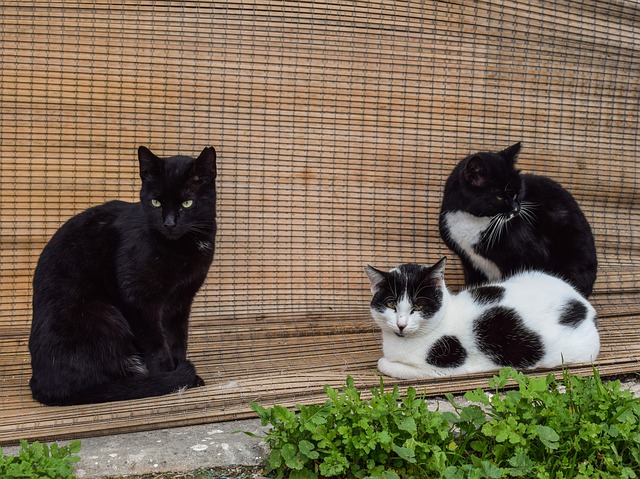
Kittens Need Other Cats
And when it comes to kittens, feline babies are more social than adult cats. From their mothers and their littermates, they find comfort and learn about the world. It’s not until kittens age into adulthood do cats worry over territory, but kitties who have grown up close to their siblings or other cats, as well as humans, tend to keep a more social aspect that sees them wanting a friend to nap with or a human to dote on them.
It’s recommended to adopt two kittens if there aren’t already cats in the home. But, even if you already have a cat or multiple cats, who wouldn’t love double the kitten fun?
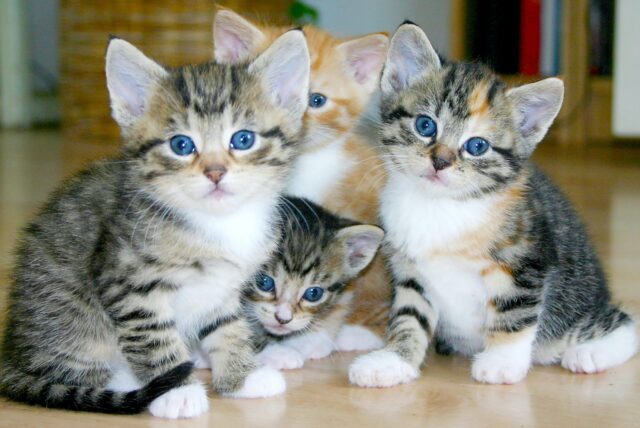
Only Cats Need Extra Attention to Beat Loneliness
Some cats need to be only cats though. They just don’t get along with others of the feline kind and that’s okay. While they may not want a fur buddy, only cats get lonely without the affection and companionship of their humans. Only cats and felines who don’t want other cats around depend on us to give them the social aspect they need in order to maintain health and happiness.
But it’s sometimes hard to know where we stand with felines. So, how do you know if your cat is lonely?
Is Your Cat Lonely?
When cats get lonely, they offer symptoms of their forlorn feelings in ways both subtle and point-blank direct. But many of the tell-tale signs of loneliness can also be signs of illness or behavioral problems. If you’re unsure, always consult your veterinarian.

Here are 5 Signs Your Cat is Lonely
#1 – Increased Sleep
Cats are known for their ability to sleep, but when a cat is sleeping more than the average 12 – 16 hours a day, and closer to 20 for senior cats, this constant snoozing can signal loneliness. Excessive sleeping can be a symptom of depression, which certainly occurs when a cat is lonely.
Dr. Jessica Vogelsang, DVM, explains, “Since we can’t ask cats exactly what they are feeling, whether they’re sad or angry or anxious or joyous, we must rely on the clues they give us through their behavior and daily activities and make our assessments based on that.”
Many signs of loneliness in cats mimic those of feline depression and it could be the two are coinciding. If you’re concerned, look for these 6 warning signs of depression in cats.
Lonely Cat Solutions: When your cat is awake, simply spend more time engaging with your cat. Initiate more playtimes and snuggle fests. This will make kitty’s naptime a necessity rather than a way to pass the lonely time.
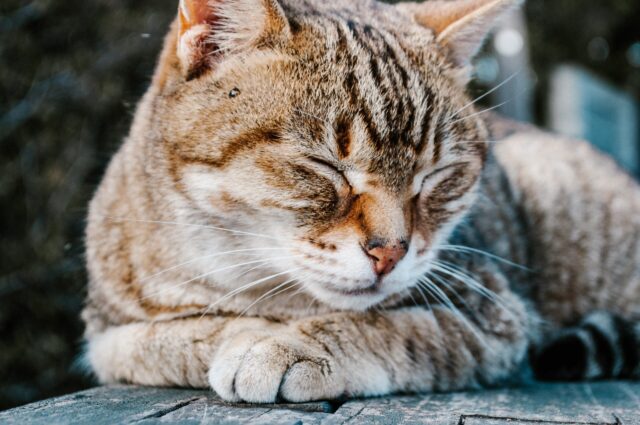
#2 – Litter Box Problems
Before you decide your cat is lonely based on litter box issues, hang on second. Peeing outside the litter box is a signal for so many different things in the feline world, ranging from health issues to behavioral problems or even both at the same time. If you’ve ruled out a medical issue, like kidney stones or a urinary tract infection, you can bet that the problem is most likely rooted in stress. Cats can become stressed out for all kinds of reasons, including loneliness and boredom.
If stress is figured to be the cause of litter box issues, there are many factors about the household which need to be examined, including how things stand between you and your cat. Are the two of you spending enough time together?
Lonely Cat Solutions: To correct inapprotiate marking outside the litter pan, don’t get angry, but calmly review litter training basics with your cats. The reminder will help break the bad behavior and the time spent together will also alleviate some of him loneliness. You can also check out these 9 tips to stop your cat from peeing outside the litter box.

Related: 8 Best Self Cleaning Litter Boxes for Cats
#3 – Destructive Behavior
Loneliness can lead to boredom and bored cats who don’t have a friend to play with may resort to destructive behaviors as a way to work out some pent-up energy. This commonly results in shredded furniture and frustrated cat parents! If your precious kitty is demonstrating destructive behavior from loneliness when you’re nearby, you can bet she’s flexing his claws when you aren’t home.
The Cornell Feline Health Center warns, “Because scratching is an innate behavior like grooming or burying waste, it can be difficult to stop. However, cats can be taught to scratch on more appropriate objects like scratching posts.”
Lonely Cat Solutions: Fill your house with scratchers of all different sorts! Place them near spots where your purring princess inflicts destruction. When she chooses to go ham on some corrugated cardboard or sisal rather than the couch or the carpet, reward her with treats. You can also try to bust boredom with these 11 fun ways to keep your cat entertained.

#4 – Aggression
Cats who are lonely can act out in aggressive and potentially dangerous ways. Dr. Jean Hofve, DVM, explains, “With cat-to-human aggression, the roots almost always lie with the person.”
If your cat has suddenly taking to swatting or biting as you prepare to leave the house, your lonely cat might be putting the blame on you, leaving you open to teeth and claws as kitty expresses their unhappiness in a dangerous way.
Lonely Cat Solutions: If your cat is being aggressive, schedule and appointment to check for medical conditions which could be causing unusual behavior. If the aggression is determined to be behavioral, address the issue early on and seek the advice of a feline behaviorist.
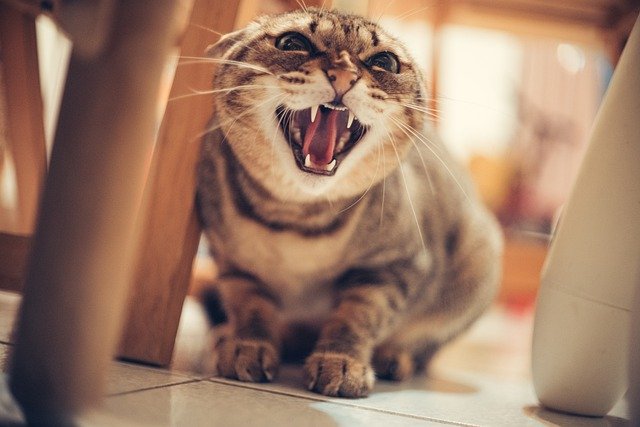
#5 – Increased Vocalization
Is your cat suddenly chattier that usual? Among other things, excessive vocalization can be a sign of loneliness. in the opinion of a feline, the best way to get a human’s attention is with lots of meows and even the occasional wail that sends a cat parent scurrying to find their kitty. Once a feline learns we come running at their repeated meowing, cats then basically condition us to respond by holding sing-alongs at inconvenient moments, like virtual meetings, when you come home from work, and at night when you’re trying to sleep.
Lonely Cat Solutions: Loneliness breeds boredom and boredom drives attention-seeking behavior in cats, including excessive vocalizations. If you seen the vet, provided extra enrichment for your cat, then Best Friends advises, “You must consistently ignore your cat’s vocalization, refusing to respond to any request for attention until the cat is quiet.”
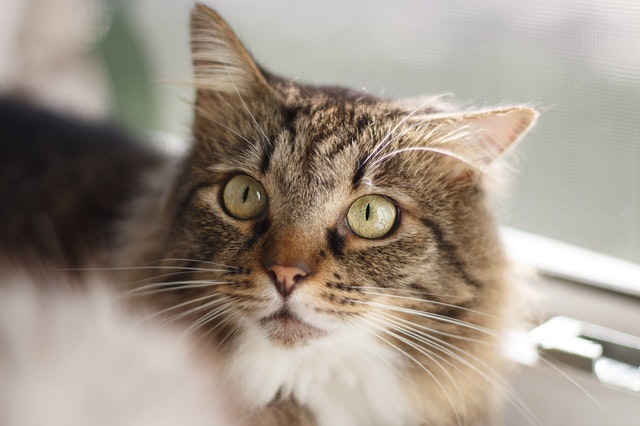
The ultimate solution to alleviating your cat’s lonely heart is growing your family. Adopting a cat or kitten can makes all the difference for your lonely cat. But to be sure introductions go smoothly and help your kitty’s become friends, read up on introducing cats to each other.
If adding another cat to the family isn’t possible, be sure to spend plenty of time with your cat. Introduce lots of toys and enrichment activities to keep your cat from getting lonely and bored. For those times when you can’t play with kitty, provide toys meant for self-play, that way your cat can attack some stuff while you’re out or busy in the house!

So, do cats get lonely?
Turns out they do, but with some pampering from you and purrhaps a new friend, your cat’s lonely days will be over!
H/T: www.catster.com
